Strategic
USS Theodore Roosevelt Outbreak Is Linked to Flight Crews, Not Vietnam Visit
US military officials are increasingly certain that the coronavirus outbreak aboard the aircraft carrier Theodore Roosevelt in March was sparked by the vessel’s flight operations, rather than a result of the ship’s port visit to Vietnam. That view comes as officials work to find the cause of an outbreak that forced the aircraft carrier to interrupt a deployment in Asia and divert to port in Guam. Numerous carrier on-board delivery flights originating in Japan, the Philippines, and Vietnam occurred in the days following the ship’s departure from Da Nang, the report said. Since some of the first Roosevelt sailors to contract the virus came from the carrier’s air wing, the picture began to clarify. Furthermore, the eight sailors who first tested positive did so over the course of March 24 and 25, more than two weeks after the ship departed Da Nang — a time period in excess of the virus’ incubation.
A third of French aircraft carrier crew have Covid-19, says Defence Ministry
A third of the nearly 2,000 sailors who were aboard France's aircraft carrier and support craft when a coronavirus outbreak occurred at sea have tested positive for the virus, the defence ministry said on April 15. With two-thirds of test results in, 668 sailors from the Charles-de-Gaulle and escort vessels in its battle group are confirmed to have the virus, it said. Thirty-one were being treated in hospital, and one was in intensive care, a ministry statement said. Last week, it was decided to bring the Charles-de-Gaulle home 10 days early from a deployment in the Atlantic after some crew members showed coronavirus symptoms. The Charles-de-Gaulle, which can transport about 2,000 sailors, had been deployed in the Atlantic as part of a NATO exercise after taking part in Operation Chammal that seeks to contain the Islamic State group in Iraq and Syria.
Pandemic hampering Japanese MSDF missions abroad
One MSDF unit, comprising two P-3C patrol aircraft and about 60 MSDF members, was deployed to a temporary SDF base in Djibouti in East Africa in January for an international anti-piracy operation off Somalia. Under the original plan, a replacement unit was to arrive about every three months. But the Defense Ministry now faces the possibility that it will be unable to replace the current unit in April because of complications arising from the pandemic, the ministry sources said. In another MSDF mission, the destroyer Takanami with a crew of 200 has been in waters in the Middle East since late February, gathering intelligence to ensure safe passage of Japanese vessels. But now that the pandemic has spread throughout the Middle East, the MSDF members have had to remain on the destroyer as a precaution against infection. A senior SDF official involved in the deployment said Japan faces a tough balancing act. The 10-year international effort to reduce piracy off Somalia has generated substantial results. However, the root cause of piracy--the pervasive poverty caused by years of strife in Somalia--remains.
NATO Defense Ministers Discuss Alliance's COVID-19 Response
NATO Secretary General Jens Stoltenberg held a virtual news conference in Brussels on April 15 after an online meeting of alliance defense ministers. NATO has adapted to change throughout its history and will continue to do so, Stoltenberg said. He said the pandemic is in different stages of infection in different NATO nations. This means that effectively coordinating resources makes a real difference. The pandemic is not the only concern for the NATO leaders, as missions of deterrence and defense must continue, Stoltenberg mentioned. "Potential adversaries will look to exploit the situation to further their own interests. Terrorist groups could be emboldened." The security situations in Afghanistan and Iraq remain fragile, and Russia continues its pace and threats. The NATO defense ministers also looked at the long-term implications of the coronavirus. "Some may seek to use the economic downturn as an opening to invest in our critical industries and infrastructure, which in turn may affect our long-term security and our ability to deal with the next crisis when it comes," Stoltenberg said.
Chinese leaders fear manufacturing exodus from China
In Zhongnanhai, the area in central Beijing where leaders of the Chinese Communist Party and the state government have their offices, "there are now serious concerns over foreign companies withdrawing from China," a Chinese economic source said. "What has particularly been talked about is the clause in Japan's emergency economic package that encourages (and funds) the re-establishment of supply chains. "Coincidentally the same day the postponement of Xi's Japan visit was announced, the Japanese government held a meeting of the Council on Investments for the Future. Abe, who chairs the council, said he wanted high value-added product manufacturing bases to come home to Japan. At the table were influential business leaders such as Hiroaki Nakanishi, chairman of the Japan Business Federation. The next day, April 8, China's Politburo Standing Committee, the party's top decision-making body, held a meeting in Beijing. Speaking at the meeting, President Xi said that "as the pandemic continues its global spread, the world economy faces a mounting downside risk." He added, "Unstable and uncertain factors are notably increasing."
Coronavirus exposes ASEAN divisions on rice security
The rapid spread of new coronavirus cases in Southeast Asia has exposed the region's divisions on food security. Senior officials from ASEAN held an urgent meeting earlier this month to seek ways of securing food supplies in the 10-nation regional bloc. "We basically agreed that ASEAN nations should keep their trade open to allow all members access to goods, particularly food," Oramon Sapthaweetham, director-general of Thailand's Department of Trade Negotiations, told the Nikkei Asian Review. "However, each country should have their own right to take any action to secure their food security as Vietnam (by way of export bans) did. That's why we need more time to reach an agreement," she added. Rice is not only a major staple in ASEAN countries, but also a politically and emotionally charged commodity, particularly for importers such as the Philippines and Indonesia, where governments face pressure to satisfy domestic consumption and keep inflation low. In contrast, major rice exporting countries, such as Thailand and Vietnam, need to keep domestic rice prices high to maintain the support of poor farmers.
Is the US pushing for WHO Leadership Change amidst Pandemic?
President Donald Trump’s decision to halt US funding to the World Health Organization has triggered heavy criticism at home and abroad for depriving the global body of its biggest donor as it battles the coronavirus pandemic. “American taxpayers provide between $400m-$500m per year to the WHO, in contrast China contributes roughly $40m a year, even less,” Trump said. “As the organisation’s leading sponsor, the US has a duty to insist on full accountability.” The US, where more than 26,000 people have died from Covid-19, the largest official national death toll, is the largest single contributor to the WHO. Of the roughly $500m it provides annually, $116m is mandated by the UN and about another $400m is in voluntary payments. In Washington, the president’s move came under heavy fire from Democrats, while Republicans were largely supportive. “This is a critical time for worldwide public health and we cannot afford China apologists running the WHO,” said Lindsey Graham, a senator who generally backs US international engagement. “I support a suspension of funding. . . until there is new leadership at the WHO.”
Head of Libya's UN-recognised government accuses renegade commander of exploiting pandemic to launch new offensive.
Libya, a large oil producer, has been engulfed in chaos since 2011 when long-time leader Muammar Gaddafi was killed in an uprising. It is now split between two rival administrations: the Tripoli-based Government of National Accord (GNA) which is led by Sarraj, and the House of Representatives allied to Haftar and his self-styled Libyan National Army (LNA), supported by Egypt and the UAE. In an interview with Italian daily La Repubblica published on April 15, al-Sarraj accused Haftar of having bombed "indiscriminately Tripoli, residential zones, civil institutions and even the public hospital of Al Khadra, in the centre of the capital". On April 13, the GNA said its troops seized control of three strategic coastal cities, including Sabrata, located between the capital, Tripoli, and the Tunisian border. The loss is a major blow to the self-styled Libyan National Army (LNA), which is allied to Haftar and backed by the United Arab Emirates, Russia and Egypt.
Only a COVID-19 vaccine will allow return to 'normalcy': UN Chief
A COVID-19 vaccine may be the only thing that can bring back "normalcy", United Nations (UN) Secretary-General Antonio Guterres said on April 15. "A safe and effective vaccine may be the only tool that can return the world to a sense of 'normalcy', saving millions of lives and countless trillions of dollars," he added during a video conference with the African countries that are members of the United Nations. He called for its accelerated development and accessibility to all, adding it must have a "universal global benefit" and "allow us to control the pandemic".
Moon's Democrats win South Korea general election in landslide
South Korean President Moon Jae-in's ruling Democratic Party won April 15's general election, claiming the biggest majority in the National Assembly by any party since the country's transition to democracy in 1987. The left-leaning DP and its satellite partner, the Together Citizens' Party, won 180 seats in the 300-member National Assembly. The main opposition, the conservative United Future Party, and its satellite Future Korea Party took 103 seats. The landslide victory for Moon's party is a vindication of his government's response to the coronavirus outbreak. It also paves the way for him to push on with his agenda, which includes "inclusive" income redistribution policies, reform of the prosecution system, and the Korean Peninsula peace process. Despite the coronavirus outbreak, voters lined up from early morning to cast their ballots on Election Day. The turnout was 66.2% -- the highest in a general election since 1992 -- with a record 26% of eligible citizens taking part in early voting last week.
Economic
Trump takes advice from 200 bosses on restarting US economy
Trump seems to have a preference of corporate leaders over economists in advising him on plans to restart the US economy. He’s enlisted almost 200 industry bosses as part of what the White House is calling the “Great American Economic Revival Industry Groups”. They include executives across sectors from agriculture to banking, construction, defence, energy, financial services, food and drink, healthcare, hospitality, manufacturing, property, retail and sports. Some big names are on the list - Apple’s Tim Cook, Facebook’s Mark Zuckerberg and Amazon’s Jeff Bezos to name three - while some companies have more than one representative, such as Blackstone, the private equity giant, and Home Depot, the world's biggest home improvement retailer. There are six Indian-Americans in the list. Trump participated in four calls with those groups on April 15. There was a wide consensus among industry executives that more testing was needed before the economy could reopen.
Cash demand surges in Europe despite coronavirus lockdown
The value of euro banknotes in circulation has increased by the largest amount since the 2008 financial crisis, according to new data which indicates many people in Europe have responded to the coronavirus pandemic by hoarding cash. In the four weeks to April 10 the value of euro banknotes distributed to individuals and businesses rose by €41.2bn to €1.33tn, the weekly financial statement published by the European Central Bank on Wednesday showed. That is the biggest jump in the amount of cash in circulation in the Eurozone since it rose by €41.4bn in the four weeks to October 24 2008 — shortly after Lehman Brothers went bankrupt, causing the global financial system to freeze. In some European countries, where cash is still the only way to pay in many shops and cafés, consumers responded to concern about the spread of coronavirus by withdrawing extra cash from ATMs at the start of the pandemic.
Iranian stock market holds its largest-ever IPO
Iran’s stock market witnessed its largest-ever initial public offering (IPO) on April 15. As reported by domestic media, Social Security Investment Company (SSIC, also known by its Persian acronym Shasta), Iran’s major state-owned investment company, offered eight billion shares, which account for 10 percent of its stakes, for sales at the Tehran Stock Exchange (TSE), Iran’s major stock market. Each institutional or individual trader could buy a maximum of 10,000 shares, by placing an order through the book-building method, according to a notice published on the TSE website. Shasta is the investment arm of the Social Security Organization, which provides healthcare entitlement and pension benefits for a large proportion of Iran’s middle and working-class members of the labour force.
China's factories cut pay and workers as exports sputter
As the coronavirus pandemic squeezes consumption around the world, China's export-reliant businesses have started to freeze hiring and lay off workers in a blow to the country's economy as a whole. Another 8.7 million university graduates will be entering the workforce later this year, which could further pressure the economy, depending on how the outbreak and government policies progress. Over 60% of roughly 7,000 workers surveyed by staffing agency Zhaopin in mid-March said their employers lowered, delayed or had not paid their wages. About 80 companies took part in a job fair in Suzhou on March 27, an event that attracted about 150 following the Lunar New Year recess in 2019. Yabao Pharmaceutical proposed a 10%-to-20% pay reduction to its workforce last month, while hinting that employees who do not accept the offer could lose their jobs. Midtier automaker Jiangling Motors Corporation Group slashed wages by about 10% to 30%. Advertising agency Xinchao Media laid off about 500 employees. Property developer Zodigrand Group, vacation rental start-up Tujia and the Chinese arm of India's Oyo Hotels & Homes have also conducted, or are considering, job cuts.
China’s excavator sales soar as Beijing opts for old-school economic stimulus
Sales of excavators, an engineering vehicle widely used in construction, soared in China in March in a strong sign that Beijing is relying on infrastructure spending to offset the economic shocks caused by the coronavirus pandemic. Sales by Chinese manufacturers surged 11.6 per cent from a year earlier to 49,408 units, according to data released by the China Construction Machinery Association, while domestic sales rose 11.2 per cent year on year to 46,610 units last month. It marked a strong rebound from the 50.5 per cent fall in February when the country’s production and construction activities were largely frozen. The increase in sales could also show that China’s stimulus efforts, involving showering money on local authorities and flooding the banking system with cheap credit – a similar approach adopted in 2008 to spur growth amid the global financial crisis – could be stronger than believed.
Coronavirus: Foreign Investment into China down almost 11 per cent in first quarter of 2020
Foreign direct investment into China fell 10.8 per cent in the first quarter to 216.19 billion yuan (US$30.7 billion) compared with a year earlier, dragged down by the coronavirus pandemic, the commerce ministry said on April 15. That compared with an 8.6 per cent decline in the first two months of the year. In March alone, foreign direct investment dropped 14.1 per cent from a year earlier.
New data shows vast scale of US economic breakdown
Data from all corners of the US economy published on April 15 revealed the scale of the collapse in consumer demand, industrial activity and confidence, suggesting the hit from coronavirus lockdowns has been deeper even than feared. Two measures in particular were historically bad: US industrial production showed the biggest monthly decline since the end of the Second World War, while retail sales dropped by the most since the data started being collected in 1992. Industrial production, a broad gauge of output from factories, mines and utilities, fell 5.4 per cent in March from the previous month, according to the Federal Reserve, its worst performance since 1946. Headline retail sales, a measure of sales in shops and restaurants, fell 8.7 per cent, according to the Commerce Department, erasing four years of growth. Both measures came in worse than economists had expected.
Tech companies step up fight against bad coronavirus info
Facebook, Google and others have begun using algorithms, new rules and factual warnings to knock down harmful coronavirus conspiracy theories, questionable ads and unproven remedies that regularly crop up on their services -- and which could jeopardize lives. Last month, Iranian media reported more than 300 people had died and 1,000 were sickened in the country after ingesting methanol, a toxic alcohol rumoured to be a remedy on social media. Other widely shared claims that hydroxychloroquine cures COVID-19 live on. In what may be a first, Facebook removed a post from Brazilian President Jair Bolsanaro, who promoted hydroxychloroquine as "working in every place" to treat coronavirus. Twitter also removed an associated video. YouTube began removing videos that claimed coronavirus was caused by 5G wireless networks last week. Some of the videos had racked up hundreds of thousands of views. Google searches for "5G" and "coronavirus" now redirect users’ news videos debunking the theory.
Cash-rich Gulf funds hunt for bargains as asset prices plunge
Gulf sovereign wealth funds including Saudi Arabia’s Public Investment Fund and Abu Dhabi’s Mubadala are mobilising to buy assets whose valuations have been hit hard by the coronavirus outbreak. The $320bn Public Investment Fund, chaired by Crown Prince Mohammed bin Salman, has already made a series of big investments in the past few weeks, from cruise operator Carnival to oil groups Royal Dutch Shell, Total, Repsol, Equinor and Eni. This week it agreed to acquire English football club Newcastle United in a £300m deal. Mubadala, Abu Dhabi’s most active sovereign investment vehicle, which is headed by Khaldoon al-Mubarak, one of the emirate’s most influential policymakers, is also actively seeking investments, including in sectors such as healthcare technology in the US and Europe, and in China. Both Mubadala and Saudi Arabia’s PIF were key investors in SoftBank’s struggling Vision Fund, pumping in $15bn and $45bn respectively.
Medical
Das Coronavirus Podcast: Christian Drosten answers on why recovered patients test positive (Episode 31)
We took an overview of this elimination over time in nine patients from Munich, in nine early cases that were treated in Schwabing, with Clemens Wendtner. It is sometimes detectable, sometimes for a few days in a row; then again it is not detectable for a few days in a row. It always jumps above and below the detection limit. These are just statistical phenomena that occur there. There are statistical distribution phenomena that lead to that the virus is basically there all the time, but the test can't always grasp that. You just have to imagine it like this; I often explain it to the students as follows: you have a paddling pool full of water and goldfish swim in it. But now, with a bucket, take a sample from this paddling pool, blindfolded. And then it may be that you have a goldfish in your bucket and sometimes not. However, one would not deny that there are goldfish in the paddling pool. But when I have fewer and fewer fish, that's at the end of the illness, there is less and less virus in the sputum, for example, or, above all, in swab specimens, then when I take a bucket out of the paddling pool there is only water in it and no goldfish. This can happen twice in a row if I take a sample of it every day. Then I say: Here the PCR was negative twice in a row.
For Further Reading:
- Wall Street Journal: USS Theodore Roosevelt Outbreak Is Linked to Flight Crews, Not Vietnam, https://www.wsj.com/articles/uss-theodore-roosevelt-outbreak-is-linked-to-flight-crews-not-vietnam-visit-11586981891?mod=hp_listb_pos2
- France 24: A third of French aircraft carrier crew have Covid-19, says defence ministry, https://www.france24.com/en/20200415-a-third-of-french-aircraft-carrier-crew-have-covid-19-says-defence-ministry
- Asahi Shimbun: Pandemic causing ‘great stress’ in MSDF missions abroad, http://www.asahi.com/ajw/articles/13296702
- US DOD: NATO Defense Ministers Discuss Alliance's COVID-19 Response, https://www.defense.gov/Explore/News/Article/Article/2151837/nato-defense-ministers-discuss-alliances-covid-19-response/
- Nikkei Asian Review: Xi fears Japan-led manufacturing exodus from China, https://asia.nikkei.com/Editor-s-Picks/China-up-close/Xi-fears-Japan-led-manufacturing-exodus-from-China
- Nikkei Asian Review: Coronavirus exposes ASEAN divisions on rice security, https://asia.nikkei.com/Politics/International-relations/Coronavirus-exposes-ASEAN-divisions-on-rice-security
- Financial Times: US allies line up to condemn Donald Trump’s WHO funding suspension, https://www.ft.com/content/08e530df-bd84-4280-89ca-0041bb0a8feb
- Al Jazeera: Libya's al-Sarraj rules out future negotiations with Haftar, https://www.aljazeera.com/news/2020/04/libya-al-sarraj-rules-future-negotiations-haftar-200415142044124.html
- Channel News Asia: Only a COVID-19 vaccine will allow return to 'normalcy': UN chief, https://www.channelnewsasia.com/news/world/covid-19-coronavirus-un-vaccine-normalcy-12646368
- Nikkei Asian Review: Moon's Democrats win South Korea general election in landslide, https://asia.nikkei.com/Spotlight/South-Korea-election/Moon-s-Democrats-win-South-Korea-general-election-in-landslide
- White House: President Donald J. Trump Announces Great American Economic Revival Industry Groups, https://www.whitehouse.gov/briefings-statements/president-donald-j-trump-announces-great-american-economic-revival-industry-groups/
- Telegraph: Trump takes advice from 200 bosses on restarting US economy, https://www.telegraph.co.uk/business/2020/04/15/trump-takes-advice-200-bosses-restarting-us-economy/
- Financial Times: Cash demand surges in Europe despite coronavirus lockdown, https://www.ft.com/content/28b59b28-44ac-43ec-b0dd-c1f1eacfbeb0
- Tehran Times: Iranian stock market holds its largest-ever IPO, https://www.tehrantimes.com/news/446818/Iranian-stock-market-holds-its-largest-ever-IPO
- Nikkei Asian Review: China's factories cut pay and workers as exports sputter, https://asia.nikkei.com/Economy/China-s-factories-cut-pay-and-workers-as-exports-sputter
- SCMP: Coronavirus: China’s excavator sales soar as Beijing opts for old-school economic stimulus, https://www.scmp.com/economy/china-economy/article/3080081/coronavirus-chinas-excavator-sales-soar-beijing-opts-old
- SCMP: Coronavirus: foreign investment into China down almost 11 per cent in first quarter of 2020, https://www.scmp.com/economy/economic-indicators/article/3080063/coronavirus-foreign-investment-china-down-almost-11
- Financial Times: New data shows vast scale of US economic breakdown, https://www.ft.com/content/6361247d-a1df-4a50-b0aa-59395801b3f3
- Mainichi: Tech companies step up fight against bad coronavirus info, https://mainichi.jp/english/articles/20200416/p2g/00m/0bu/028000c
- Financial Times: Cash-rich Gulf funds hunt for bargains as asset prices plunge, https://www.ft.com/content/3facc407-200f-4e7c-9914-79b4baece119
- NDR: (31) Re-infection remains unlikely, https://www.ndr.de/nachrichten/info/31-Eine-Wiederinfektion-bleibt-unwahrscheinlich,podcastcoronavirus186.html#Reaktivierung
Image Source: https://cdn.pixabay.com/photo/2020/03/11/11/46/covid-19-4921924_960_720.jpg

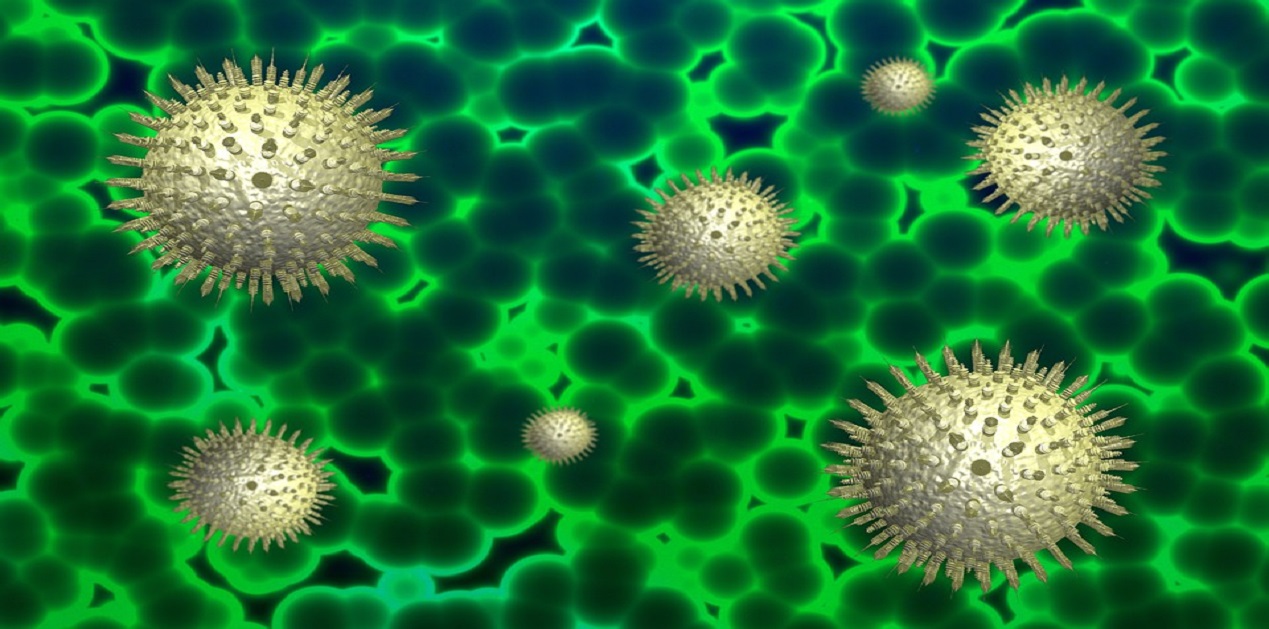

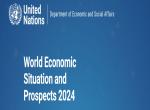
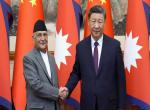

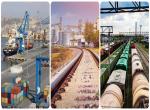

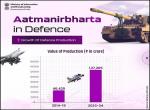
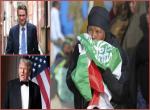
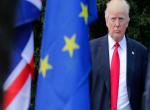
Post new comment